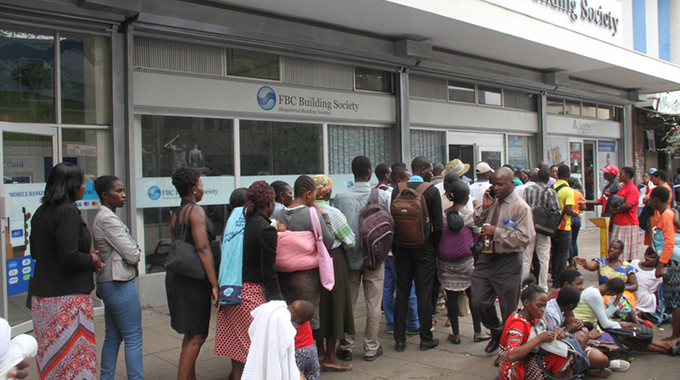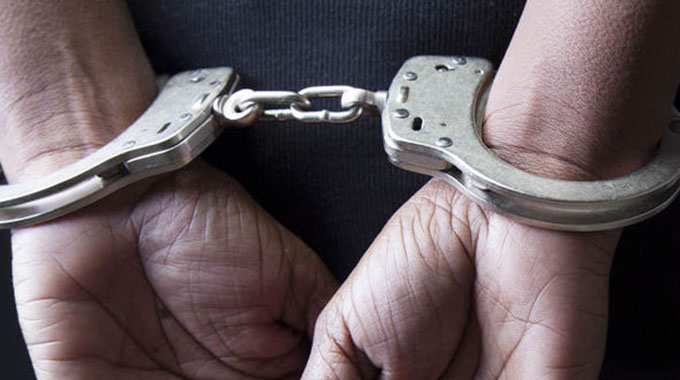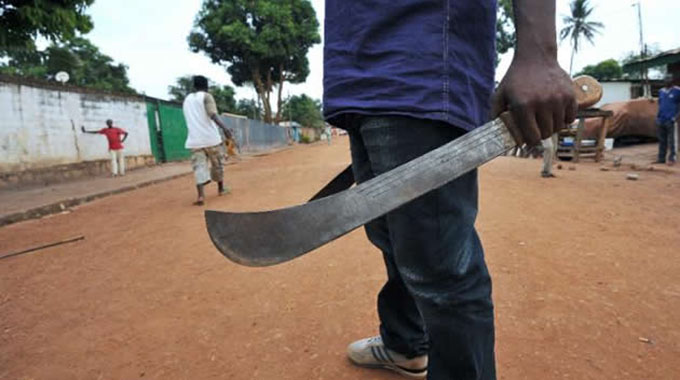Bank queues: A personal experience

Tanaka Mahanya Features Writer
After a long period of cash challenges, the announcement that the Reserve Bank of Zimbabwe (RBZ) would release new notes and coins raised expectations.
It was everyone’s hope that the new money would be easily accessible in banks without having to queue for very long hours like before.
Many expected the notes and coins would save them from cash barons, who are selling cash at a premium.
With the new cash injection, people expected order when withdrawing money, unlike when people used to endure long hours to be served at banks.
Above all, depositors looked forward to accessing the $300 weekly withdrawal limit, rather than having to make four transactions to meet the amount.
Our wishful thinking is yet to come to pass as there has been little change at the country’s financial institutions.
I experienced it first hand when I tried to withdraw money from my CABS account, and also observed what was happening at other banks in the central business district on November 14, 2019 and the days that followed.
People started trickling at CABS First Street branch in Harare at 4am hoping that by the time the bank opened, they would be the first to withdraw their money.
The first anomaly was security gave numbers from 16 going forward, as the first 15 were reserved for their colleagues.
But the numbers were not to be useful later. Chaos ensued when the bank opened its enclosed ATMs at 8am.
There was jostling as late comers were disrupting the queue, disregarding the numbered pieces of paper distributed earlier in morning. Security officers came to the rescue, getting rid of all those trying to jump the queue. During the commotion, which the security eventually contained, some chancers suspected to have paid security were smuggled in.
At a snail’s pace, the queue began to move. After being served, Jefarinos Buka from Kuwadzana Extension wore a broad smile while waving his $80 made up of the new $2 notes as he left the bank after four hours of waiting.
He gloated to those who were waiting for their turn: “I am done for the day, the struggle is now yours.”
However, Buka like everyone who queued that day came face to face with the harsh reality of “bank queue politics” as soon as he entered the banking hall.
“I was number 51 when I arrived here, but when I got inside, that is when I realised I was now number 89. There are a lot of people inside who were not in the queue outside,” he complained.
Those who came last had the privilege of withdrawing cash before those who started queueing in the wee hours of the morning, which was quite unfair.
Only the ATM had cash at the bank, making the whole process slow for the multitudes queuing. Senior citizens were not getting any preferential treatment.
Sixty-four-year-old Flora Mutema, who is diabetic, left home at around 5am hoping to withdraw her cash early, having heard that the central bank had issued new notes and coins. When I spoke to her around 9.35am, she had not had her first meal of the day.
“I am very hungry right now and I can collapse any time. This is not good for my health,” she said.
She had resorted to leaning on the walls because she could not carry on with the fatigue and hunger any longer, being one of the people at the back of the queue.
The main reason she wanted cash was to convert the money into United States dollars in order to buy her diabetes medication, which costs US$16.
“It is better for me to withdraw cash, then change the money into United States dollars as the rates are lower as compared to swipe and EcoCash,” she said.
When she arrived at the bank at 4.55 am, she hoped she would be in a position to withdraw her money immediately and and proceed to buy her medication, but people were jumping the queue further reducing her chances of getting cash.
“The queue is hardly moving since we came here. There is no order as some customers are just bulldozing their way to the front of the queue,” Mutema said.
As a result, most of those who were at the bank by 4.30am only managed to be served around 10am — almost five hours later.
Some were chancing their luck by trying to withdraw more than the stipulated $80, shutting down the ATM machine in the process. I decided to leave the bank due to the chaotic situation and opt for NMB Bank, less than 100 metres down the street, hoping the situation would be better there.
There was a very long queue almost as long as the one I had abandoned at CABS, as everyone struggled to withdraw money that morning. At NMB withdrawals were pegged at $100 per transaction.
The lady who was in front of me, Shupikai Mabhaya, arrived at the bank around 4am, but by 10am, she was yet to be served.
Mabhaya left the queue for a few minutes to visit the toilet, but when she came back, her place in the queue had been taken over by another desperate client.
She had to rejoin the queue from the back. “It would have been better if they are giving us $300 at once, but they are only offering $100, which is peanuts considering transport costs are going up on a regular basis,” she said.
While in the queue I learnt of a group of people known as “magunduru” (or street kids) who are at the bank as early as 3am to sell queue numbers to people who are in a hurry to withdraw their money at between $5 to $10.
Those who did not have cash to pay for numbers had to go to the back of the queue as those with their money enjoyed the privilege of withdrawing first.
In the blink of an eye, chaos erupted as a young man wanted to jump the queue, with a group of men and women restraining him.
Security then announced that the cash had run out, leaving people in the queue dejected. No one knew when the cash would be available again with no communication from the bank.
We started dispersing, all hope of getting a feel of the new notes and coins dashed.
It was almost midday, and since morning, I had not eaten a thing, but that was the least of my worries.
At that point I had figured it was not my lucky day. I passed by Stanbic Bank, but they had not opened their doors yet.
“We do not know when the bank will open, but we hope it will open soon. Bank authorities haven’t communicated with us so far on the developments,” said Peter Mako, a client.
However, the situation was different at Standard Chartered Bank along Nelson Mandela Avenue as there was a neat, short queue, which made it possible for its clients to withdraw their cash without hassles.
A Bindura man, Ponomono Musekiwa, said people were making withdrawals of up to $300 per day, which equated to the weekly limit.
Musekiwa did not have money to ferry him back home pinning his hopes on that withdrawal. He, however, wished that the maximum amount for withdrawals per week would be increased as $300 “was not enough”. Having failed to “cash out” from the bank, I decided to try my luck with the ubiquitous cash barons. as I needed cash to pay for the kombi back home.
From my experience that day, the latest cash injection is yet to make an impact on Zimbabwe’s current cash crisis.









Comments